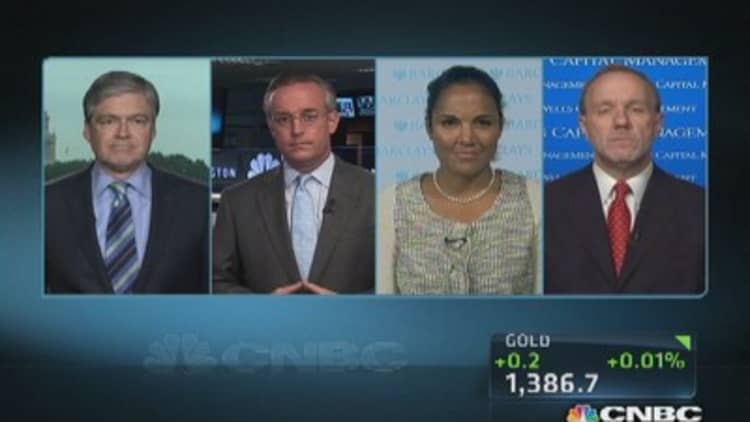Dubai stocks closed 8.5 percent higher on Tuesday as investors responded to reports that the United States and its allies were considering a diplomatic approach rather than military strikes on Syria.
It's the largest one-day jump for that market since 2009, when a $10 billion bailout from neighboring Abu Dhabi helped the emirate avert a default.
Syria on Tuesday moved quickly to accept a proposal from Russia that it give up its chemical weapons, hoping to avert a military strike from the United States. While expressing skepticism about the plan, President Barack Obama said Monday that Russia's proposal could be "potentially a significant breakthrough."
The threat of retaliatory strikes has grown increasingly pronounced since what is believed to have been a chemical attack by the Syrian government killed 1,400 Syrian civilians in August.
Shares on the Dubai Financial Market have been among the best performing, and most volatile in the world. On Friday, CNBC reviewed a roller-coaster two-week ride for the index.

"The index has been trading on news flow rather than fundamentals," Saleem Khokhar, head of equities at the National Bank of Abu Dhabi, told CNBC.
Developer Emaar Properties, the heaviest stock on the index, surged 8.5 percent. Real estate stocks were among the better performing sectors, up 9.5 percent.
Dubai is seen as a safe haven in the region and is home to large Arab expatriate communities from Egypt and Syria, among others.
"There was a large inflow of regional and international money into the United Arab Emirates on the Emerging Markets upgrade and valuation grounds. We are seeing some reversal of these positions resulting in high volatility," Khokhar added.
Economic growth in Dubai is forecast to reach 3.1 percent in 2013 and 3.6 percent in 2014, according to the International Monetary Fund.
On Monday, Knight Frank's Global House Price Index for the second quarter revealed Dubai's property market had a year-on-year price increase of 21.7 percent, largest among the 55 countries tracked by the index, beating out Hong Kong and Taiwan to the top of the list. The news is likely to inflame ongoing discussion about whether authorities should intervene to .
Other indexes in the Middle East also made substantial headway, with Abu Dhabi and Qatar closing up 5.5 percent and 4.9 percent, respectively. In Saudi Arabia, meanwhile, where trade is predominantly driven by domestic investors and petrochemical stocks, markets rose 2.9 percent.
—By CNBC's Yousef Gamal El-Din. Follow him on Twitter @youseftv

